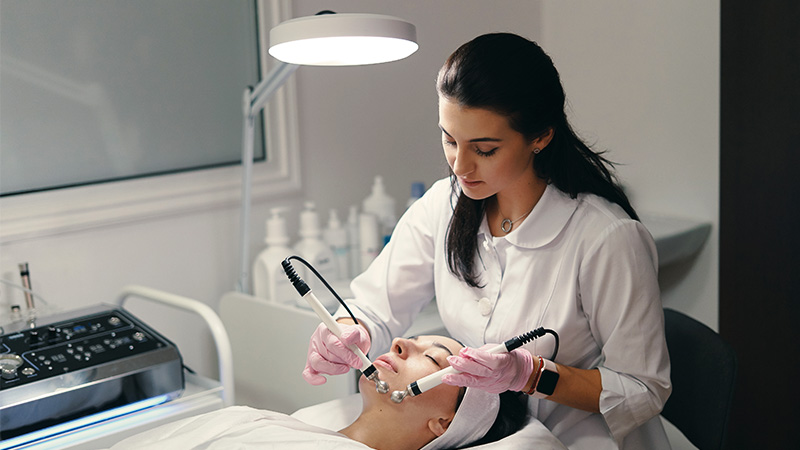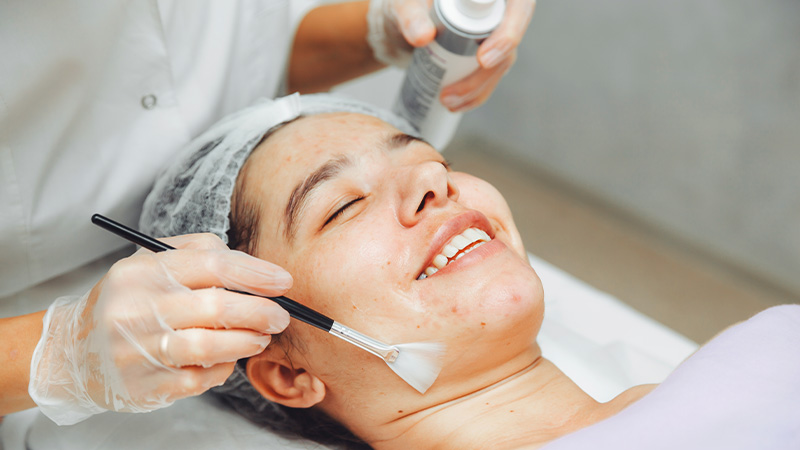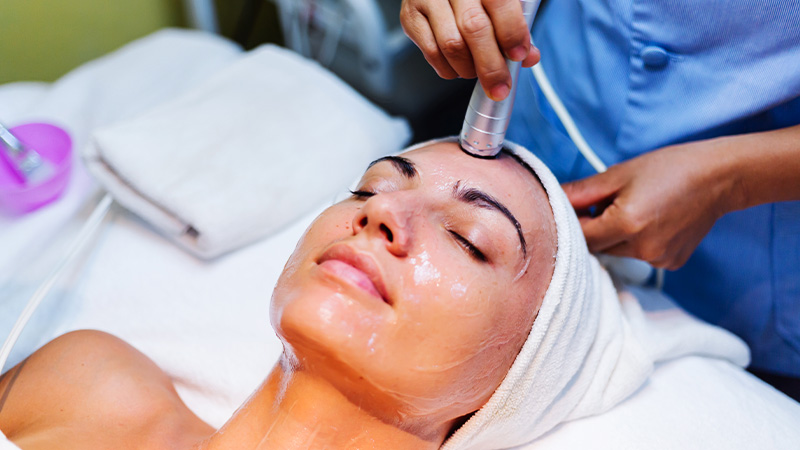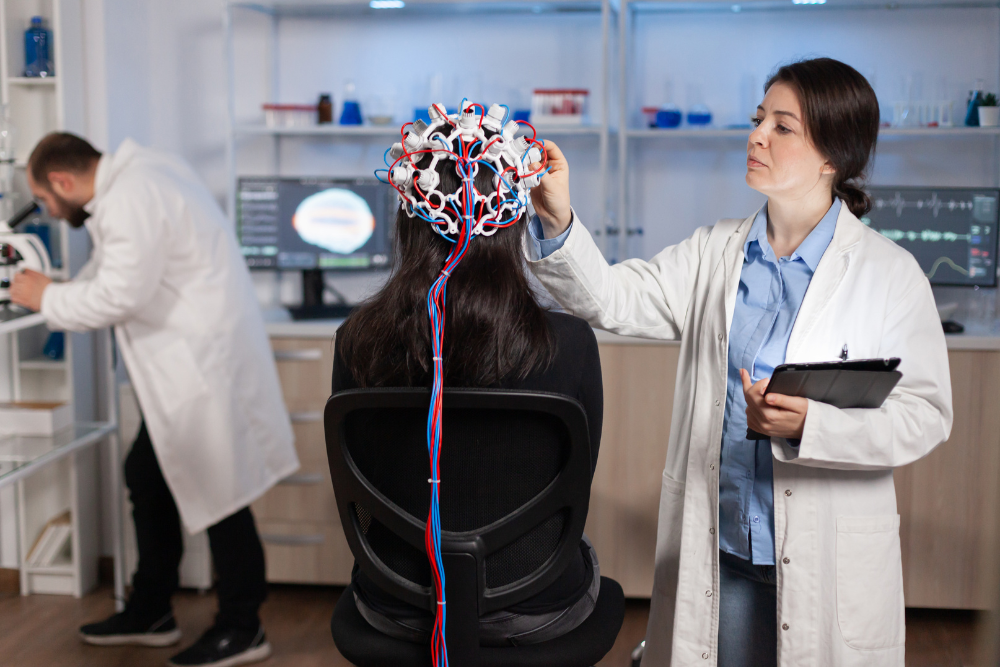Overview
Cosmetic dermatology focuses on enhancing the appearance of the skin, hair, and nails to achieve aesthetic goals. Unlike medical dermatology, which primarily addresses skin health and disease, cosmetic dermatology at Parvathy Hospital aims to improve and rejuvenate the skin for cosmetic purposes. It encompasses a variety of non-invasive and minimally invasive procedures designed to enhance natural beauty, address signs of aging, and boost self-confidence.
Common Areas of Focus
Cosmetic dermatologists address a wide range of aesthetic concerns related to the skin, hair, and nails, including but not limited to:
- Anti-Aging Treatments: Providing interventions to reduce the signs of aging, including wrinkles, fine lines, and loss of skin elasticity.
- Dermal Fillers and Injectables: Administering fillers and injectables, such as hyaluronic acid or botulinum toxin, to enhance facial contours, plump lips, or reduce the appearance of wrinkles.
- Laser and Light Therapies: Utilizing lasers and light-based technologies to address issues like pigmentation, sun damage, vascular lesions, and unwanted hair.
- Chemical Peels: Applying chemical solutions to exfoliate the skin, improve texture, and address concerns such as hyperpigmentation or acne scars.
- Body Contouring: Offering non-surgical procedures to address excess fat, cellulite, or sagging skin on various areas of the body.
- Hair Restoration: Providing solutions for hair loss and thinning, including topical treatments, platelet-rich plasma (PRP) therapy, or hair transplant procedures.
- Scar Revision: Employing techniques to minimize the appearance of scars, whether they result from acne, surgery, or trauma.
- Skin Tightening: Using devices or procedures to improve skin laxity and promote a more youthful appearance.
- Cosmetic Dermatologic Surgery: Performing surgical procedures for cosmetic purposes, such as eyelid surgery (blepharoplasty) or liposuction.
- Medical-Grade Skincare: Recommending and prescribing specialized skincare products to address specific skin concerns and maintain optimal skin health.
Treatment and Care
Cosmetic dermatology involves a personalized and tailored approach to address individual aesthetic concerns. Treatment and care may include:
- Consultation and Assessment: Conducting thorough consultations to understand the patient's goals, assess their skin condition, and recommend suitable treatments.
- Customized Treatment Plans: Developing personalized treatment plans that may involve a combination of procedures to achieve optimal results.
- Non-Invasive and Minimally Invasive Procedures: Offering a variety of procedures that range from non-invasive treatments, such as facial peels, to minimally invasive options like injectables or laser therapies.
- Patient Education: Providing information about the benefits, risks, and expected outcomes of various cosmetic procedures to ensure informed decision-making.
- Post-Treatment Care: Offering guidance on post-treatment care, including skincare routines and precautions to optimize recovery and results.
- Follow-Up Assessments: Conducting follow-up assessments to monitor progress, address any concerns, and make adjustments to the treatment plan if necessary.
When to Consult a Doctor ?
It is advisable to consult a cosmetic dermatologist at Parvathy Hospital, when:
- Individuals have specific aesthetic concerns related to the skin, hair, or nails.
- Aging signs, such as wrinkles or fine lines, become noticeable and individuals seek rejuvenation.
- There is a desire to address specific skin issues, such as pigmentation, acne scars, or uneven texture.
- Hair loss or thinning becomes a concern, and individuals seek solutions for hair restoration.
- Individuals are interested in exploring non-surgical or minimally invasive options for aesthetic enhancement.
- There is a need for professional guidance on skincare products and routines tailored to specific skin concerns.
Call +91 98412 98412 for medical emergencies or 044 2238 2248 / +91 98848 99091 to book an appointment.
General (FAQ) For Cosmetic Dermatology
Cosmetic dermatology focuses on enhancing the appearance of the skin, hair, and nails through non-surgical and minimally invasive procedures, including Botox, fillers, laser treatments, and chemical peels.
A clinical dermatologist primarily diagnoses and treats medical skin conditions, while a cosmetic dermatologist specializes in procedures to improve the aesthetic appearance of the skin, such as anti-aging treatments and cosmetic enhancements.
A cosmetic surgeon may have diverse medical backgrounds, including dermatology. Dermatologists, however, are specialists in skin health, and some may specialize in cosmetic dermatology.
A doctor who specializes in hair and scalp conditions is often referred to as a trichologist or a dermatologist with expertise in hair disorders.
A doctor who focuses on the skin of the face, including cosmetic concerns, is commonly known as a facial dermatologist or cosmetic dermatologist.
No, a cosmetologist is not a medical doctor. Cosmetologists are professionals trained in beautifying the hair, skin, and nails but do not have the medical qualifications of a doctor.
No, a Bachelor of Medicine, Bachelor of Surgery (MBBS) is not required for cosmetology. Cosmetologists typically undergo specific training and certification in beauty-related procedures.
Yes, dermatologists can perform certain facial surgeries, particularly those related to skin health and appearance, such as facelifts or eyelid surgery.
An aesthetic dermatologist is a dermatologist with expertise in aesthetic or cosmetic procedures to improve the appearance of the skin, addressing concerns like wrinkles, fine lines, and skin texture.
A cosmetic doctor is a medical professional, often with a background in various specialties like dermatology or plastic surgery, specializing in cosmetic procedures to enhance a person's appearance.
Dermatologists can address certain types of hair loss and may recommend treatments to promote hair regrowth, depending on the underlying cause.
An aesthetician is a skincare professional trained in providing various beauty treatments, including facials, waxing, and skincare advice. They do not hold medical degrees.
Yes, dermatologists may order blood tests to assess certain skin conditions or to investigate underlying health issues related to the skin.
Acne can be both a medical and cosmetic concern. Dermatologists address the medical aspects of acne, including its causes and treatments, while cosmetic dermatologists focus on managing acne-related scarring or discoloration for aesthetic improvement.














